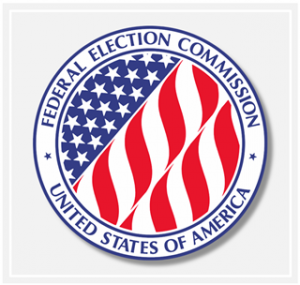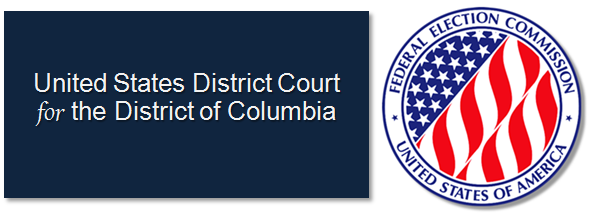August 5, 2021 •
Hawaii Senate Bill Passes Related to Electioneering Communications
A Senate bill in Hawaii passed affecting the reporting of electioneering communications. Senate Bill 404 provides persons, including corporations, making expenditures for electioneering communications in an aggregate amount of $1,000 instead of $2,000 during any calendar year must file reports […]
A Senate bill in Hawaii passed affecting the reporting of electioneering communications.
Senate Bill 404 provides persons, including corporations, making expenditures for electioneering communications in an aggregate amount of $1,000 instead of $2,000 during any calendar year must file reports within 24 hours of each disclosure date.
The bill also exempts communications that are actual expenditures of an organization from being considered electioneering communications and excludes candidate and candidate committees from the disclosure requirements.
The information is effective and applicable for the 2022 primary election.
April 14, 2016 •
MA OCPF Issues Regulation Concerning Coordination
On April 8, the Massachusetts Office of Campaign and Political Finance (OCPF) issued new regulations concerning coordination between candidates and independent expenditure-only political committees. The new regulations clarify definitions in the law for the terms “independent expenditure” and “electioneering communication” […]
 On April 8, the Massachusetts Office of Campaign and Political Finance (OCPF) issued new regulations concerning coordination between candidates and independent expenditure-only political committees. The new regulations clarify definitions in the law for the terms “independent expenditure” and “electioneering communication” and try to “define situations in which a presumption of coordination exists between a candidate and an outside spender who is expressly advocating on the candidate’s behalf,” according to the OCPF.
On April 8, the Massachusetts Office of Campaign and Political Finance (OCPF) issued new regulations concerning coordination between candidates and independent expenditure-only political committees. The new regulations clarify definitions in the law for the terms “independent expenditure” and “electioneering communication” and try to “define situations in which a presumption of coordination exists between a candidate and an outside spender who is expressly advocating on the candidate’s behalf,” according to the OCPF.
The OCPF has said the regulations were created in response to frequent inquiries about the rules of coordination between candidates and other political entities.
July 30, 2015 •
Proposed FEC Rules Up for Public Comment
The Federal Election Commission (FEC) is seeking public comment on new campaign finance regulations addressing disclosure of independent expenditures and electioneering communications. The FEC is also seeking comment on new rules addressing solicitations of corporate and labor organization employees and […]
 The Federal Election Commission (FEC) is seeking public comment on new campaign finance regulations addressing disclosure of independent expenditures and electioneering communications. The FEC is also seeking comment on new rules addressing solicitations of corporate and labor organization employees and members, independence of expenditures made by independent expenditure-only political committees and accounts, and election-related spending by foreign nationals.
The Federal Election Commission (FEC) is seeking public comment on new campaign finance regulations addressing disclosure of independent expenditures and electioneering communications. The FEC is also seeking comment on new rules addressing solicitations of corporate and labor organization employees and members, independence of expenditures made by independent expenditure-only political committees and accounts, and election-related spending by foreign nationals.
Comments may be submitted electronically at http://www.fec.gov/fosers, referencing REG 2015–04, and must be submitted on or before October 27, 2015.
November 26, 2014 •
District Court Rules FEC Regulation Limiting Disclosure “Arbitrary, Capricious, and Contrary to Law”
On November 25, the United States District Court for the District of Columbia ruled corporations and labor organizations making electioneering communications are required to disclose all donors making contributions over $1,000. Under 11 C.F.R. §104.20(c)(9), the Federal Election Commission’s regulation […]
On November 25, the United States District Court for the District of Columbia ruled corporations and labor organizations making electioneering communications are required to disclose all donors making contributions over $1,000. Under 11 C.F.R. §104.20(c)(9), the Federal Election Commission’s regulation ruled invalid, disclosure was only required when made explicitly for the purpose of furthering electioneering communications.
In Christopher Van Hollen v. Federal Election Commission, the Court found the commission’s regulation “arbitrary, capricious, and contrary to law” and “an unreasonable interpretation of the [Bipartisan Campaign Reform Act (BCRA)].” 52 U.S.C. § 30104(f)(d)(E)–(F) of the BCRA does not require any preconditions for when to disclose donors making contributions over $1,000.
The Court ruled the commission’s regulation “serves to frustrate the aim of the statute because the introduction of a subjective test to the reporting regime creates an exception that has the potential to swallow the rule entirely. A donor can avoid reporting altogether by transmitting funds but remaining silent about their intended use.”
The case was brought in 2011 by U.S. Rep. Christopher Van Hollen.

January 31, 2014 •
FEC Releases Legislative Recommendations
The Federal Election Commission (FEC) released its package of legislative recommendations this week. All eight recommendations were unanimously approved by the commission with the hope Congress will implement the changes. Some of the changes proposed include requiring electronic filing of […]

The Federal Election Commission (FEC) released its package of legislative recommendations this week. All eight recommendations were unanimously approved by the commission with the hope Congress will implement the changes.
Some of the changes proposed include requiring electronic filing of electioneering communications reports, making permanent the Administrative Fine Program for the delinquent filing of reports, and increasing and expanding the prohibitions on fraudulent misrepresentation of campaign authority.
Noting other federal and state agencies receive “donated services and products for information technology projects,” the FEC would also like Congress to authorize the commission to have the ability to accept such gifts for use in continuing “its efforts to facilitate transparency in the federal campaign finance system through a state-of-the-art, web-based public disclosure system.”
April 2, 2012 •
FEC Disclosure Regulation Declared Invalid
US District Court Decision
 A US District Court has declared a Federal Election Commission (FEC) regulation regarding disclosure for “electioneering communications” invalid.
A US District Court has declared a Federal Election Commission (FEC) regulation regarding disclosure for “electioneering communications” invalid.
The US District Court for the District of Columbia found FEC regulation 11 CFR §104.20(c)(9), which requires disclosure only of those making contributions over $1,000 to an entity for the purpose of furthering electioneering communications, contradicts the statute which requires disclosure of all donors making contributions over $1,000.
Concluding the FEC does not have the authority to narrow the disclosure requirement required by law, the Court declared the regulation invalid by granting the plaintiff, U.S. Representative Chris Van Hollen, summary judgment.
The FEC had argued for the need for the regulation after FEC v. Wisconsin Right to Life, Inc. (WRTL), which concluded corporations and labor organizations were permitted to make expenditures for electioneering communications that did not constitute express advocacy or its functional equivalent. The commission believed requiring only disclosure of funds earmarked for the purpose of furthering electioneering communications appropriately provided the public with adequate disclosure information.
Addressing this argument in the decision, District Judge Amy Berman Jackson wrote, “The [FEC] cannot unilaterally decide to take on a quintessentially legislative function; if sound policy suggests that the statute needs tailoring in the wake of WRTL or Citizens United, it is up to Congress to do it.”
February 28, 2012 •
Up-to-the-Minute Campaign Finance Report Data from The NYTimes
The Times Developer Network is now updating FEC report data every 15 minutes.
 The Times Developer Network is now offering data from reports received by the Federal Election Commission through its Campaign Finance API (application programming interface). What was once a set of reports updated weekly, or in some cases daily, is now updated every 15 minutes.
The Times Developer Network is now offering data from reports received by the Federal Election Commission through its Campaign Finance API (application programming interface). What was once a set of reports updated weekly, or in some cases daily, is now updated every 15 minutes.
You can find campaign finance information for the presidential and congressional candidates, PACs and super PACs, electronic filings by date and type, independent expenditures, and electioneering communications.
For the full story, be sure to read “Campaign Finance Data in Real Time” by Derek Willis in The New York Times.
You’ll be interested to also see “Campaign finance updates in real time? There’s an API for that” by Meranda Watling in 10,000 Words.
State and Federal Communications, Inc. provides research and consulting services for government relations professionals on lobbying laws, procurement lobbying laws, political contribution laws in the United States and Canada. Learn more by visiting stateandfed.com.


